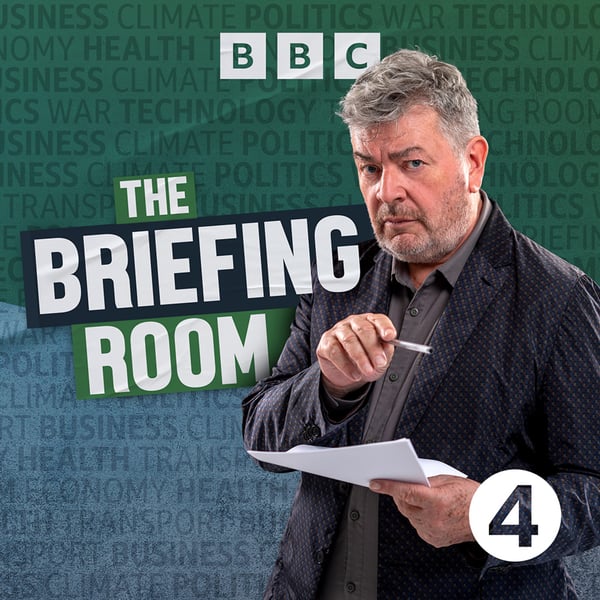Climate Change: is time running out?
The Briefing Room
BBC
4.8 • 731 Ratings
🗓️ 21 December 2018
⏱️ 29 minutes
🧾️ Download transcript
Summary
In October, the IPCC, the UN body that reports on climate change, issued a stark warning. It said that if the world wanted to avoid catastrophic environmental damage, we needed to reduce carbon emissions by almost half in the next 12 years. So what needs to be done now if that target is to be reached? What's the position in China, the world's largest emitter of carbon dioxide? And how important is the stated intention of President Trump to withdraw the United States from the Paris Agreement on greenhouse gas emissions? We hear from, among others, Professor Lord Nicholas Stern, the author of the seminal Stern Review in 2006.
Transcript
Click on a timestamp to play from that location
| 0:00.0 | Welcome to the briefing room with me, David Aronovich. |
| 0:03.2 | Step inside and find out what you need to know about the issues that matter from people who really know what they're talking about. |
| 0:10.3 | And you can subscribe to the podcast via BBC Sounds. |
| 0:14.4 | If the program works for you, and particularly if it doesn't, and you know how possibly it could, |
| 0:20.2 | tell us what you think by writing a review or rating us on your podcast provider. |
| 0:24.9 | This week, we're talking about climate change, and I'll be speaking to Lord Nicholas Stern, who back in 2006, was author of the very influential Stern review on climate change. |
| 0:37.0 | And if you enjoy this podcast, you might enjoy other editions of the briefing room, |
| 0:40.4 | which are all available on BBC Sounds. |
| 0:51.5 | Right now, we're facing a man-made disaster of global scale. |
| 0:58.0 | Our greatest threat in thousands of years, climate change. |
| 1:04.0 | Arguably, it's the most important story of them all. |
| 1:08.0 | In October, the IPCC, that's the UN body that reports on climate change, |
| 1:13.1 | issued a report that concluded that if humanity wants to avoid catastrophic environmental damage, |
| 1:19.1 | then we need to reduce carbon emissions by almost half in the next 12 years. 12. And that would |
| 1:26.3 | mean, and I quote, rapid, far-reaching and unprecedented changes in all |
| 1:31.4 | aspects of society. What things would we have to do and what are the chances of us doing them? |
| 1:37.8 | It's a huge subject, but you can make a start here with me in the briefing room. |
| 1:50.0 | First, a word about our assumptions. This program is predicated on the acceptance |
| 1:53.0 | that the international scientific consensus on climate change |
| 1:56.0 | and its causes is more likely than not to be correct. |
| 2:00.0 | Just so you know. First, we're going to get a |
| 2:02.7 | brief history of climate change from Professor Mark Maslin. He's a climatologist at University |
... |
Please login to see the full transcript.
Disclaimer: The podcast and artwork embedded on this page are from BBC, and are the property of its owner and not affiliated with or endorsed by Tapesearch.
Generated transcripts are the property of BBC and are distributed freely under the Fair Use doctrine. Transcripts generated by Tapesearch are not guaranteed to be accurate.
Copyright © Tapesearch 2025.

